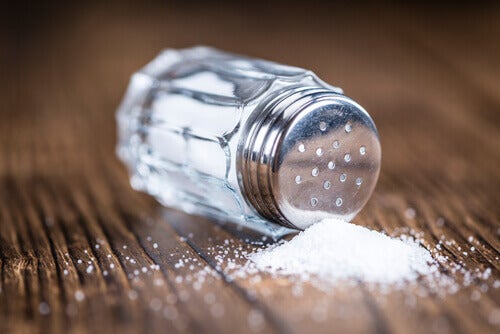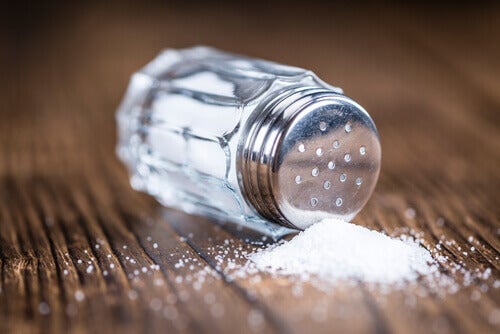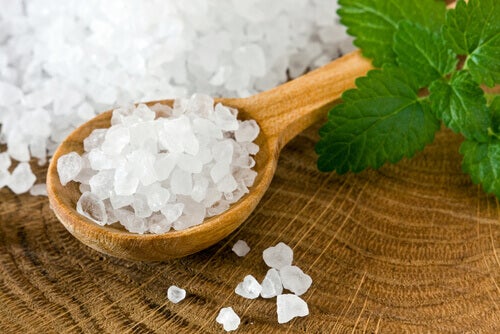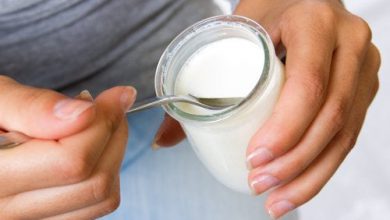Does Sea Salt Bring 10 Benefits To Your Body?

Until recently, sea salt was seen by many consumers as a healthy alternative to replace traditional table salt. In fact, it was credited with 10 and more health benefits.
However, in order to take care of everyone’s health, nutrition experts have denied many of the claims that were being made about its consumption. Next, we will review the effects of sea salt and its consumption recommendations.
What is sea salt?
Sea salt is obtained from the evaporation of seawater or saltwater lakes. Due to its thick and crunchy texture, it is often used in gastronomy for the preparation of various types of recipes. Also, for this same reason it is added to body scrubs and other products.
Due to the boom that it had thanks to many advertisements, this type of salt became popular as an alternative to traditional table salt, the intake of which is associated with several health problems. In fact, many even claimed that it was a salt with less sodium and that it was packed with beneficial nutrients.
However, as a publication in the American Heart Association points out , both table salt and sea salts contain approximately 40% sodium by weight and, therefore, the consumption recommendations do not differ from one version to another.

Does sea salt have more benefits than table salt?
The concrete answer is no. Although many have labeled it as a superfood , the truth of all is that the nutritional composition of salt does not vary much compared to table salt. Its big difference, according to the Mayo Clinic , is in its taste, texture and processing.
Thus, while sea salt is obtained from the evaporation of ocean water with minimal processing, table salt is usually extracted from underground salt deposits and undergoes a series of treatments where minerals are removed and additives are added.
Now, according to information in the Journal of Sensory Studies , it is true that, depending on the water source, sea salt is left with certain trace elements and elements, including potassium, iron and calcium.
However, their amounts are minimal and you would have to eat large portions to be able to approach the amount that other foods provide of these same minerals.
What are the 10 benefits attributed to sea salt?
Perhaps because of the confusion that the commercials generated regarding sea salt, many people assumed that it was a salt with great health benefits. However, at this point we know that this is an exaggeration, since the nutritional composition is almost the same as table salt.
The truth of all is that sodium, regardless of the source that is obtained, is a mineral necessary to maintain health. According to information published in Advances in Nutrition , in adequate doses, that is, no more than 5 grams a day, it can help the following functions:
- Balance fluids and electrolytes in the body.
- Regulate blood pressure.
- Contribute to nerve and muscle function.

Unproven benefits of sea salt
Because of its mineral content, which differ from table salt, sea salt has been credited with many health benefits. However, many of these properties were exaggerated at the time and, today, most are disproved. The alleged benefits are as follows:
- Strengthen defenses.
- It helps to alkalize the body and regulates the pH of the blood.
- Fight asthma.
- Lowers cholesterol and blood pressure levels.
- Fight depression.
- Regulates digestion.
- Improves the quality of sleep.
- Prevents premature aging.
- Helps reduce the need for insulin.
- Relieves skin diseases.
Recommendations of the world health organization (WHO)
The WHO warns that excessive sodium intake is associated with hypertension and an increased risk of heart disease and stroke. For this reason, it advises to consider the following:
- That adults consume less than 5 g (less than a teaspoon) of salt per day.
- Salt fortified with iodine should be used whenever possible, as it is essential for healthy fetal brain development and thyroid function.
- Stop believing that sea salt is better than table salt just because it is “natural.”
- Check food labels, as many are high in sodium.
- Do not add salt during food preparation.
What should be clear about this salt?
Those multiple benefits that were attributed to sea salt are not true. In reality, this type of salt is quite similar to traditional table salt, with the difference that it has not been processed and it is not fortified with iodine.
So just because it is natural does not mean that it is better for your health. Like other sources of sodium, its excessive consumption can have negative consequences. Keep that in mind!








